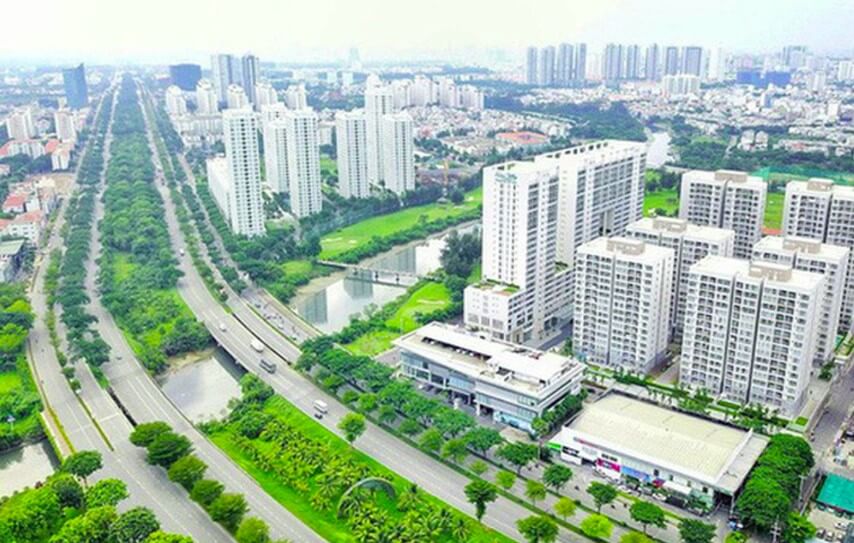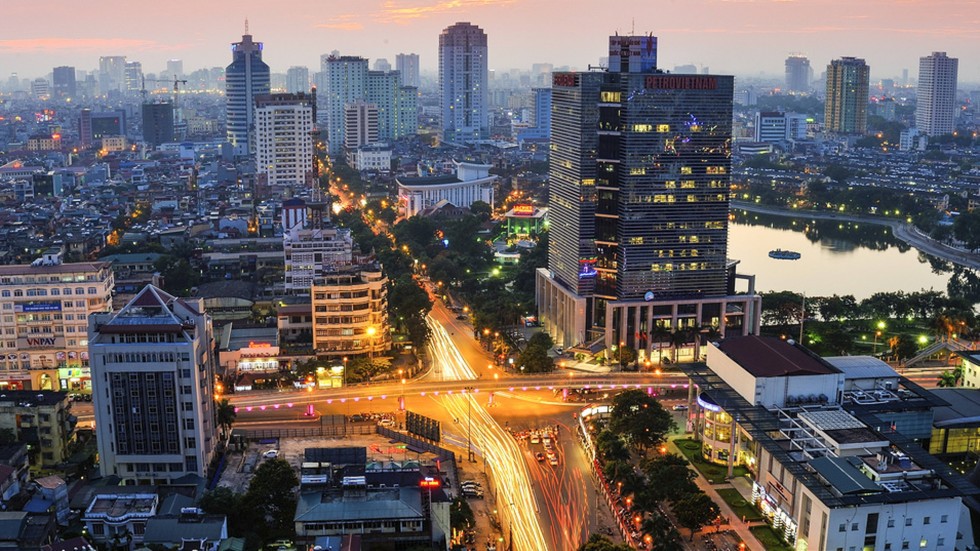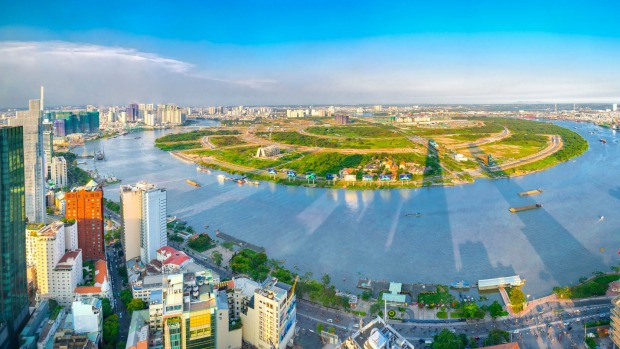Regulations on normal industrial solid waste management in Vietnam
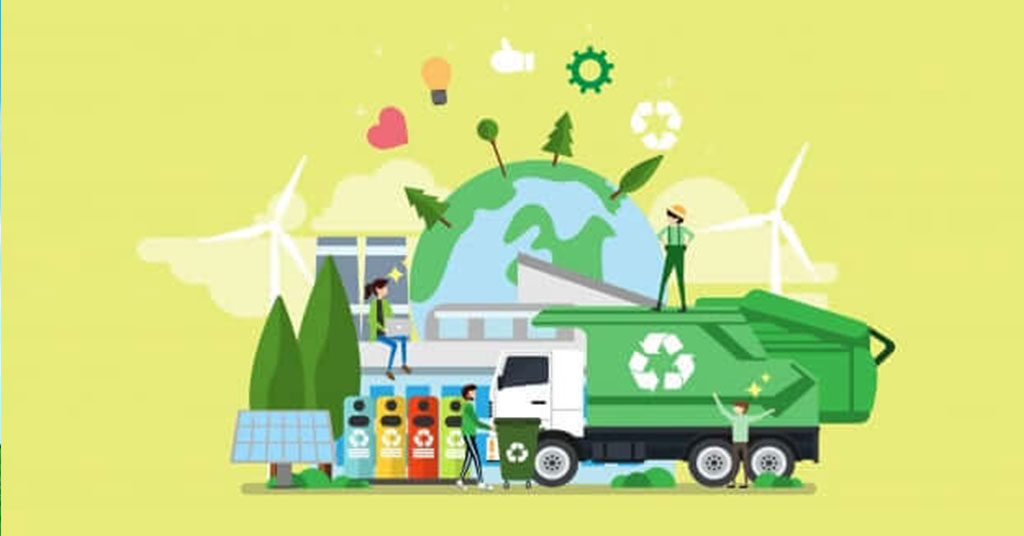
Vietnam law has regulations on normal industrial solid waste management. Let’s find out this issue with Lawyer X through the following situation: “Dear Lawyer! I want to ask what are regulations on classification, storage and transport of normal industrial solid waste in Vietnam? What are regulations on hazardous waste treatment? Thanks for answering my questions!”
Legal grounds
- Vietnam law on environmental protections
Classification, storage and transport of normal industrial solid waste
– Normal industrial solid waste (“NISW”) shall be classified into the following groups:
+ NISW reused and recycled as production materials;
+ NISW in compliance with standards, technical regulations and technical guidance used in production of building materials and leveling;
+ NISW subject to treatment.
– Owners of businesses, dedicated areas for production, business operation and service provision, industrial clusters and organizations that produce NISW shall classify NISW at source as prescribed in Clause 1 of this Article; store NISW without causing environmental pollution. Unclassified NISW must be managed as the waste specified in Point c Clause 1 of this Article.
– NISW containing hazardous waste that has not been classified or cannot be classified must be managed in accordance with hazardous waste management regulations.
– Classified NISW must be stored separately without being mixed with hazardous waste; without release of dust and leakage of wastewater into the environment; with appropriate equipment and tools and in appropriate storage areas in accordance with regulations laid down by the Minister of Natural Resources and Environment.
– NISW must be transported in accordance with the following requirements:
+ NISW must be contained in equipment and tools to avoid leakage during transport, except for the case where the waste in large quantity must be contained in equipment or tank of the transport vehicle;
+ Classified NISW must be transported separately prescribed;
+ The vehicle used for transporting NISW subject to treatment must have a GPS tracking device meeting technical requirements and comply with regulations on routes and time of operation adopted by the provincial People’s Committee.
Regulations on Treatment of NISW
– Businesses, dedicated areas for production, business operation and service provision, industrial clusters and organizations that produce NISW must reuse, recycle, recover energy from and treat NISW or transfer it to the following entities:
+ Manufacturing establishments directly using NISW as production materials and for production of building materials or leveling, which is licensed to operate as prescribed by law;
+ Manufacturing establishments licensed for waste co-processing;
+ Facilities licensed for NISW treatment;
+ Facilities transporting NISW, which have signed a transfer contract with the entity in Points a, b or c of this Clause.
– NISW treatment service providers must comply with environmental protection requirements in accordance with regulations of this Law.
– Every owner of NISW treatment service provider has the following responsibilities:
+ Ensure that systems, vehicles and equipment in service of storage and treatment of NISW, including preliminary processing, reuse, recycling, co-processing, treatment of and recovery of energy from NISW in accordance with technical requirements and management process as prescribed;
+ If the provider produces hazardous waste, responsibilities of the hazardous waste source owner shall be assumed;
+ Submit periodic or ad hoc reports on NISW generation and treatment at the request of the competent authority;
+ make a record on transfer of NISW subject to treatment for each transfer; prepare a logbook recording operation of systems, vehicles and equipment in service of NISW treatment including preliminary processing, reuse, recycling, co-processing and recovery of energy from NISW; a logbook recording quantity of products recycled or recovered from NISW (if any).
– Every entity that generates NISW subject to treatment is entitled to recycle, treat, co-process or recover energy from NISW itself/himself/herself if the following requirements are met:
+ Use technologies, environmental protection works and equipment available within the facility generating NISW and satisfy environmental protection requirements as prescribed;
+ Conform to the decision on approval of EIAR appraisal result and environmental license;
+ Do not build any new incinerator or landfill to treat NISW, except for the case where contents regarding solid waste management in relevant planning are conformable with.
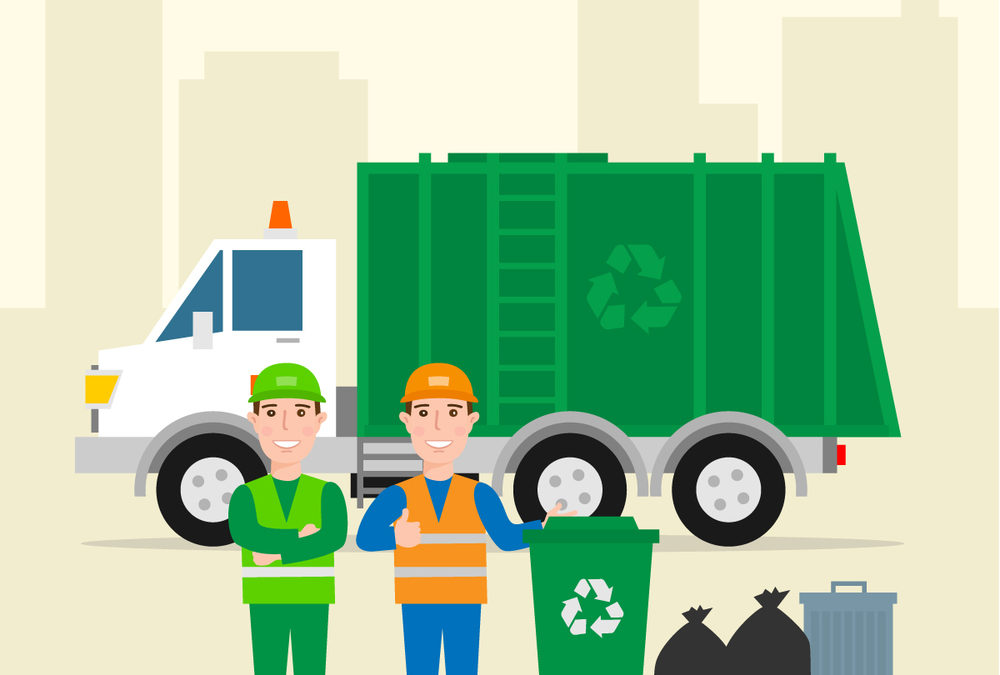
Declaration, classification, collection, storage and transport of hazardous waste
– Every hazardous waste source owner has the responsibility to:
+ specify quantity and type of hazardous waste in the application for issuance of the environmental license or environmental registration contents;
+ identify, classify, collect and separately store hazardous waste and not to mix it with non-hazardous waste, avoid causing environmental pollution;
+ reuse, recycle, treat, co-process and recover energy himself/herself in accordance with regulations of law or transfer hazardous waste to facilities having an appropriate environmental license.
– Hazardous waste must be stored in accordance with the following requirements:
+ Classified hazardous waste must be stored separately;
+ Hazardous waste must not be mixed with normal waste;
+ The storage must not result in release of dust or leakage of liquid waste into the environment;
+ Hazardous waste shall be only stored for a given period of time as prescribed by law.
– When transported, hazardous waste must be contained and transported using appropriate equipment and vehicles to waste treatment facilities. The vehicle used for transporting hazardous waste must have a GPS tracking device and comply with regulations on routes and time of operation adopted by the provincial People’s Committee.
– Entities permitted to transport hazardous waste include:
+ Hazardous waste source owner that has appropriate vehicles and equipment satisfying technical requirements and management process in accordance with regulations of law on environmental protection;
+ Environmental license holders licensed to treat hazardous waste in conformity with the type of waste to be transported.
– The Minister of Natural Resources and Environment shall provide technical guidance on and forms used for declaration, classification, collection, and storage of hazardous waste; provide guidance on vehicles and equipment for storage, transport, prevention of and response to incidents during the transport and treatment of hazardous waste; provide guidance on registration and transboundary movements of hazardous waste under the Basel Convention on Basel Convention on the Control of Transboundary Movements of Hazardous Wastes and their Disposal.
Regulations on Hazardous waste treatment
– Hazardous waste must be treated using appropriate technologies and complying with regulations of law on environmental protection.
– The State shall encourage and provide incentives to entities involved in investment in and provision of hazardous waste treatment services; encourage the investment in hazardous waste treatment service providers at regional level; encourage the co-processing of hazardous waste.
– Every hazardous waste treatment service provider must satisfy the following requirements:
+ The national environmental protection planning or planning containing contents regarding hazardous waste treatment is conformed to, except for the case of hazardous waste co-processing;
+ Safe environmental distance is maintained as prescribed;
+ It is required to appraise and comment on the hazardous waste treatment technology in accordance with regulations of law on technology transfer; the application of environmentally-friendly technologies, best available techniques and combined waste treatment and waste-to-energy technologies is encouraged;
+ The environmental license is available;
+ Personnel in charge of environmental protection majoring in environment or suitable field is available;
+ An appropriate process for safe operation of special-purpose technologies, vehicles and equipment is available;
+ There is an environmental management plan containing contents regarding pollution control and waste management; occupational safety and health; environmental emergency prevention and response; annual training; environmental monitoring program; assessment of efficiency in hazardous waste treatment; environmental improvement and remediation plan;
+ pay deposits on environmental protection as prescribed in Article 137 of this Law if the waste burial is carried out;
– The Minister of Natural Resources and Environment shall promulgate criteria applied to hazardous waste treatment technologies; provide guidelines for implementing Point g Clause 3 of this Article.
– The provincial People’s Committee shall organize implementation of the planning containing contents regarding hazardous waste treatment; shall not impose restrictions on collection of hazardous waste produced in another province for treatment by hazardous waste treatment service providers located within its province.
Responsibilities of owners of hazardous waste treatment service providers
Every owner of hazardous waste treatment service provider has the responsibility to:
– satisfy all requirements specified in Clause 3 Article 8 of this Law.
– collect, transport, receive and handle quantity and types of hazardous waste in accordance with the issued environmental license.
– Ensure that systems, vehicles and equipment for storage and treatment of hazardous waste satisfy technical requirements and management process as prescribed.
– assume responsibilities of the hazardous waste source owner if the hazardous waste is generated from the operating process but fails to be treated.
– register with the authority issuing the environmental license within his/her power to obtain approval if wishing to transport the hazardous waste not mentioned in his/her environmental license to the another qualified owner of hazardous waste treatment service provider in accordance with the Government’s regulations.
– Prepare, use, archive and manage documents concerning hazardous waste, hazardous waste management reports, documents and logbooks related to hazardous waste management as prescribed.
– Make publicly available and provide information about types and quantity of hazardous waste collected and treated, and treatment methods; information about name and address of the owner of collected and treated hazardous waste source and other environmental information that needs to be made publicly available and provided as prescribed in Article 114 of this Law.
Please see more:
- Instructions for exclusive registration of company logos in Vietnam
- Service of changing the legal representative of Vietnamese enterprises
Services of Lawyer X
Prestigious professional services: Firstly, the team of consultants and consultants for many years in the field of civil status, and customer support.
On-time: Certainly, with the motto “Get your lawyer right at your fingertips”, we ensure the service always performs on time. The rights and interests of customers always come first.
Cost: Besides, Lawyer X’s service costs are highly competitive; depending on the nature of the particular case. So, we want our guests to have the best possible service experience. Therefore, costs which guaranteed to be the most suitable and economical for customers.
Confidentiality of client information: Finally, all personal information of clients Lawyer X will be 100% confidential.
If you need any further information, please contact LSX Law firm: at +84846175333 or Email: [email protected]
Frequently asked questions
Normal industrial solid waste (“NISW”) shall be classified into the following groups:
+ NISW reused and recycled as production materials;
+ NISW in compliance with standards, technical regulations and technical guidance used in production of building materials and leveling;
+ NISW subject to treatment.
NISW containing hazardous waste that has not been classified or cannot be classified must be managed in accordance with hazardous waste management regulations.
NISW treatment service providers must comply with environmental protection requirements in accordance with regulations of this Law.
Conclusion: So the above is Regulations on normal industrial solid waste management in Vietnam. Hopefully with this article can help you in life, please always follow and read our good articles on the website: lsxlawfirm.com


